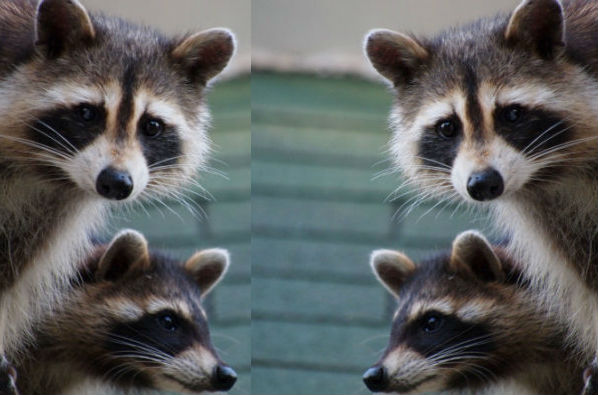 The Health Department and NYC Parks today began vaccinating raccoons against rabies in New York City. Raccoons can get sick with rabies and potentially spread the virus to other mammals or people.
The Health Department and NYC Parks today began vaccinating raccoons against rabies in New York City. Raccoons can get sick with rabies and potentially spread the virus to other mammals or people.
Since 2014, New York City has been vaccinating raccoons against rabies to help keep them healthy, using bait that contain an oral rabies vaccine (ORV).
“Rabies can be deadly for people and pets,” said Health Commissioner Dr. Dave A. Chokshi. “New Yorkers should ensure their pets are up to date on vaccinations and avoid interactions with wild mammals. From rabies in raccoons to COVID in our City, vaccines work to help keep New Yorkers safe this summer.”
“Raccoons are a natural part of our city,” said Richard Simon Wildlife Unit Director for NYC Parks. “Although it’s very rare to come into contact with a rabid raccoon, we want to remind all New Yorkers that if you see a raccoon, you should give them space – never approach or try to feed them. We’re grateful for the Department of Health for their partnership in taking this preventative measure to encourage healthier wildlife in our parks.”
On Tuesday, June 15, the Health Department and NYC Parks will distribute ORV baits in Manhattan’s Inwood Hill and Fort Tryon Parks as part of an ongoing effort to eliminate the virus from Manhattan.
Additional vaccination efforts are planned for other boroughs in the months ahead.
The small, brown-colored ORV baits are fish-scented and resemble a ketchup packet that conceals a small amount of pink, liquid vaccine. Raccoons are attracted to the odor and when they chew the bait, they can become immunized, which protects them against rabies infection.
The bait itself does not harm people, but in extremely rare instances, exposure to the liquid may cause a rash. In the unlikely event someone comes in contact with the liquid, they should wash hands with warm, soapy water, talk to their doctor, and notify the Poison Control Center at 1-800-222-1222.
The bait is not harmful to pets and cannot cause rabies, but it can cause vomiting if several baits are consumed. If pets find the bait, do not try to take it away from them to avoid being bitten and exposed to the vaccine.
Thirteen rabid animals have been found across the five boroughs to date in 2021: 1 raccoon and 1 cat from Bronx, 7 raccoons and 2 cats from Staten Island, 1 raccoon from Manhattan, and 1 from Queens.
Rabies is a fatal but preventable viral disease. It can spread to people and pets if they are bitten by a rabid animal.
In NYC, rabies is mostly found in raccoons. The rabies virus infects the central nervous system. If a person or pet does not receive the appropriate medical care after a potential rabies exposure, the virus can cause disease in the brain, ultimately resulting in death.
Rabies can be prevented by vaccinating pets, staying away from wildlife, and seeking medical care after potential exposures before symptoms start.
Raccoons
- Raccoons live in New York City; if seen during the day be cautious but not alarmed. Being out during the day does not mean it is rabid, it may just be looking for food.
- Do not feed raccoons.
- Observe raccoons from a distance. For more information about raccoons, visit Wildlife NYC.
To protect yourself against rabies:
- Do not touch or feed wild animals, stray dogs or cats.
- Keep garbage in tightly sealed containers to avoid attracting wildlife.
- Stay away from any animal that is behaving aggressively.
- Stay away from any wild animal that appears ill or acts unusually friendly. Call 311 to report a sick animal.
- Animals that have attacked, or seem likely to attack, should be reported to 911.
- Do not try to separate animals that are fighting.
To protect your pet against rabies:
- Vaccinate your pets, make sure their vaccinations are up to date and keep them leashed.
- Keep your dog leashed while outdoors.
- Do not leave your pets outdoors unattended.
- If your pet has been in contact with an animal that might be rabid, contact your veterinarian immediately and report the incident to 311.
- Feed pets indoors.
If you are bitten or scratched by an animal:
- Immediately wash the wound with lots of soap and water.
- Seek medical care from your health care provider.
- If the animal is not owned, and can be captured, call 311.
- If the animal is a pet, get the owner’s name, address and telephone number so the Health Department can monitor the animal.
- To report a bite, call the Animal Bite Unit (212-676-2483) between 9 a.m. and 5 p.m. during the week. At night or on weekends, call 212-POISONS (764-7667).
- For information about medical follow-up, call 311 or your medical provider.
For more information about rabies in New York City, visit www.nyc.gov/health/rabies.
For more information on the Oral Rabies Vaccine, please visit the following sites:
New York State Department of Health: http://www.health.ny.gov/diseases/communicable/zoonoses/rabies/vaccfact.htm
United States Department of Agriculture Animal and Plant Health Inspection Service, National Rabies Management Program: http://tinyurl.com/usda-rabies
Become a Harlem Insider!
By submitting this form, you are consenting to receive marketing emails from: . You can revoke your consent to receive emails at any time by using the SafeUnsubscribe® link, found at the bottom of every email. Emails are serviced by Constant Contact








